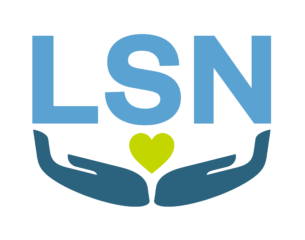Policies and Procedures (adapted from Northern Illinois University)
Standards of professional conduct (adapted from University of California Santa Barbara)
STANDARDS OF PROFESSIONAL CONDUCT FOR FELLOWS
All fellows are expected to comply with Campus Health and University policies that apply to all other staff. These policies are listed on the Campus Health website. Policies include but are not limited to: non-discrimination and non-harassment, confidentiality, HR policies, requirements for on-line training and testing required by the Environment of Health and Safety, and Joint Commission specified regulations. Fellows are expected to conduct themselves ethically, responsibly and professionally and to follow the same standards of behavior required of all CAPS professional staff. It is our intent at CAPS to provide effective services in a competent, respectful and ethically informed manner. Thus it is expected that fellows are aware of and maintain behavior within the scope of NASW ethical guidelines and HIPAA standards, especially around issues of practicing within one’s competence level, confidentiality, disclosure of information, maintaining appropriate boundaries and multicultural competence. In order to work together as an effective team, we have to treat one another with respect and strive to communicate effectively. Fellows and other trainees are expected to behave in a manner that promotes professional interaction within CAPS and is in accordance with the standards and expectations of the center. This would include treating all staff, fellow trainees and clients in a considerate, respectful and professional manner at all times, including when working out disagreements or conflicts. Furthermore, conveying respect requires the earnest effort to become aware, and considerate of values/beliefs based upon cultural, ethnic, racial, gender, sexual orientation, age, ability, religious, etc.
In addition to the professional behavior expected of all staff, there are certain expectations of fellows, commensurate with their roles and needs, as participants in a training program. At CAPS, we view training as an active process that requires fellows to take responsibility and actively participate in defining and communicating their own training needs. In addition, the following expectations are also geared to maximize the gains trainees are likely to derive from the program.
- Attend, be on time and be prepared for supervision and other training activities and clinical responsibilities
- Advise appropriate staff if unable to attend training activities or other responsibilities
- Be cognizant of and meet specified deadlines
- Fill out requested evaluations in a timely manner
- Follow appropriate and professional guidelines if problems are encountered
- Maintain appropriate boundaries and negotiate multiple roles within the training program, staff and University
- Be aware of and follow all responsibilities delineated in the training manual
- Take initiative and contribute your skills as part of the CAPS team
- Use good judgment in choice of attire in order to appear professional
- Seek permission before making any changes to your office and CAPS work areas
Conflict is a natural part of teams of people working together. However, the atmosphere in the organization is directly impacted by the manner in which conflict is addressed and managed. Thus, it is important to maintain responsible and professional behavior in attempting to resolve interpersonal conflicts, differences and disagreements. It is also recognized that power differentials within the organization may sometimes make it difficult to resolve a conflict directly, especially if the person with whom you are having difficulty has authority over you and is in a position to evaluate you.
Positive steps towards resolving a conflict could include any of the following:
Attempt to discuss the situation/disagreement directly with the person involved. It is always appropriate, but not necessarily required, to seek consultation regarding a disagreement from one’s supervisor, or members of the Training Committee. If the conflict involves these people, other resources for consultation might include CAPS’ Associate Director or Director, as appropriate. One of the purposes of consultations is to try to slow down the process of conflict resolution in order to sort out and clarify assumptions, expectations, and misunderstandings. If consultation is sought, discuss the outcome with one’s supervisor, the Coordinator of Training or the Director. Give direct feedback, after appropriate consultation and preparation, rather than talking about the person in question to others. While a fellow would be encouraged to initiate resolution of a conflict, to the extent that staff members are aware of a conflict, it is expected that staff would initiate and model conflict resolution by taking the steps outlined above. Defining and initiating resolution of a conflict should never lead to punitive or retaliatory behavior.
Trainee/staff relationship guidelines (adapted from University of California, Davis-1992)
CAPS is committed to promoting the personal and professional development of all trainees. This process of development is fostered by respect for each trainee as an individual and with an atmosphere of openness and honesty in communication. Our goal is to create an environment conducive to learning where trainees feel safe and respected. We strive to foster positive mentoring relationships while not compromising our ability to adequately maintain objectivity and serve in an evaluative role. Staff is encouraged to form strong, authentic, supportive relationships with trainees in which they can serve as positive role models, supervisors, and mentors while also maintaining appropriate and clear boundaries and operating within the ethical guidelines specified by NASW.
Move on to GUIDELINES FOR ADDRESSING UNSATISFACTORY PERFORMANCE

